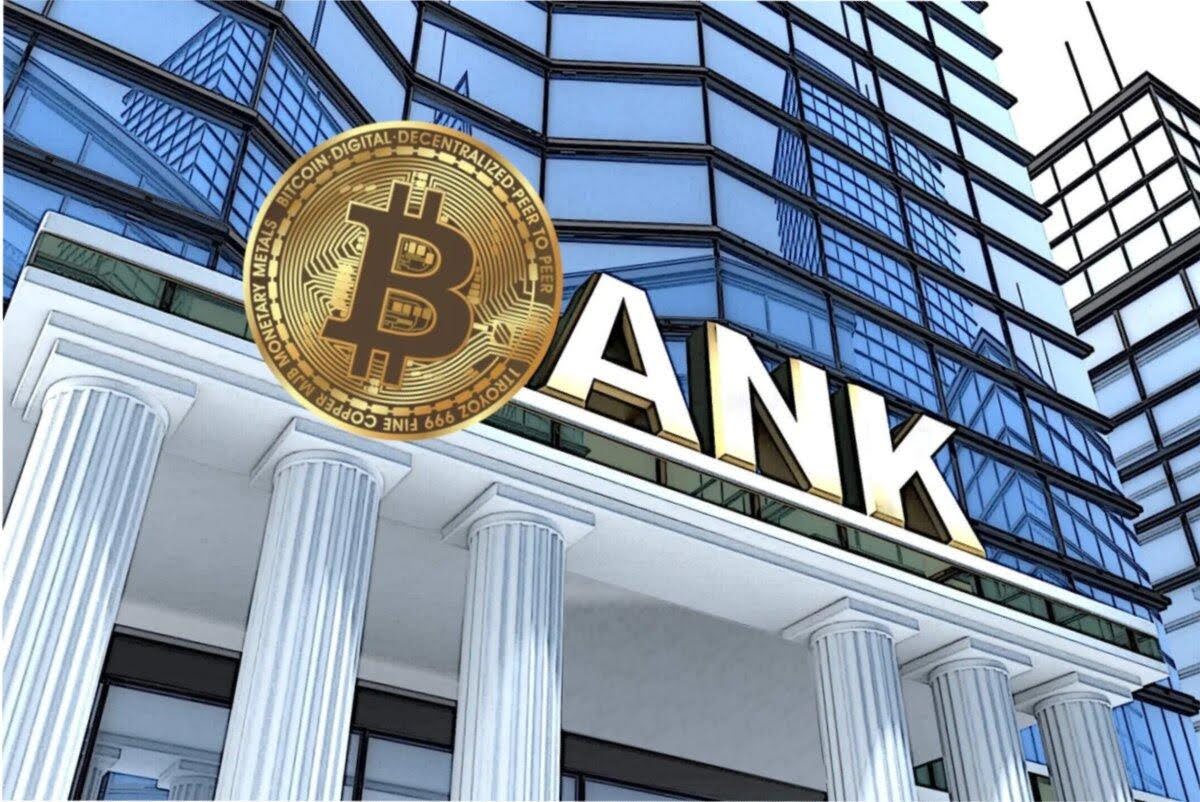U.S. Set to Punish Banks Over Crypto Discrimination, Could This Trigger the Next Bitcoin Boom?

Key Takeaways:
- A new U.S. Executive Order will penalize banks for rejecting crypto-related businesses.
- Binance founder CZ believes this will unlock global banking access for crypto firms.
- Analysts say this could become the largest catalyst since the Bitcoin ETF approval, accelerating institutional adoption.
The crypto world may be on the edge of a seismic shift. A White House official confirmed that a sweeping Executive Order is underway that will prohibit financial institutions from discriminating against crypto companies. The order has the potential to force banks to open their doors to digital assets and according to Binance founder Changpeng Zhao (CZ), the implications could be global.
Read More: Bitcoin Hits $122K but CZ Warns: “In a Few Years, This Will Be Just a Fraction”

A New Executive Order Aims to Break the Banking Barrier
In a turn that may transform the dynamic between conventional finance and cryptocurrencies significantly, the Biden regime is on the verge of forbidding banks to decline crypto clients lacking rational ground.
According to a senior White House official quoted in a statement by analyst Paul Barron, the Executive Order would penalize or fine institutions that refuse to offer their services on the mere basis that a firm is involved in cryptocurrency.
This is a sharp shift of departure of policy ambiguity before. Until now, many banks especially U.S. correspondent banks have routinely blocked or denied fiat transactions tied to crypto exchanges or wallets, citing “compliance risks” or regulatory uncertainty. The new order would render such blanket denials illegal.
CZ: “This Opens Banking for Crypto Internationally”
Responding on his official X (formerly Twitter) account, Binance founder CZ commented:
“It used to be that corresponding banks in the U.S. block transactions involving crypto. This opens banking for crypto internationally.”
CZ’s remark hints at the ripple effect this order could have far beyond the U.S. Many non-U.S. banks still rely on U.S. correspondent banks to settle cross-border fiat transactions. If those U.S. banks are now barred from rejecting crypto transactions, then crypto firms across Asia, Latin America, Africa, and Europe may suddenly find themselves with new access to banking infrastructure.
This would be particularly significant for startups and exchanges in emerging markets, where local banking restrictions often stem from de-risking policies tied to U.S. banking networks.
Read More: CZ Fires Back at Bloomberg’s “Hit Piece” on Trump-Linked Stablecoin, Lawsuit on the Table?
A Clear Signal to Institutional Investors
The Bitcoin ETF Approval Was Just the Beginning
According to Paul Barron and other industry commentators, this Executive Order could become the next major inflection point for institutional capital entering the space.
Whereas the approval of spot Bitcoin ETFs earlier this year legitimized crypto as an asset class, this move goes a step further, making it operationally viable for hedge funds, asset managers, and corporates to bank with crypto-related service providers.
- Fidelity, BlackRock, and ARK Invest were among the first to capitalize on Bitcoin ETF launches.
- But for many other institutions, the lack of access to banking services has remained a bottleneck particularly for investments in smaller altcoins, staking infrastructure, or DeFi protocols.
The new policy reduces the compliance ambiguity that discouraged banks from onboarding crypto clients. If enacted effectively, it could usher in an entire wave of capital sitting on the sidelines due to perceived regulatory risks.
“Get ready for the floodgates to open; institutional money is coming,” Barron wrote.

Regulatory Clarity After Years of Tension
This Executive Order could reset the tone of U.S. crypto regulation. The industry has long argued that regulatory uncertainty, especially from overlapping agencies like the SEC and CFTC, has left banks hesitant to serve legitimate crypto firms.
If banks now face fines or disciplinary action for refusing such clients without cause, it sends a clear message: crypto is no longer a gray area, it’s part of the financial system.
This could also relieve pressure on foreign banks, who often follow U.S. standards when dealing with international wire transfers. A policy shift from the U.S. could thus reverberate through the global banking hierarchy.
Why This May Be Bigger Than It Seems
While headlines may focus on “fair treatment,” the broader consequence is that crypto infrastructure will become bankable at scale. That’s not just about Coinbase or Binance. This includes:
- On-ramps and off-ramps for DeFi protocols
- Stablecoin issuers
- Tokenized asset platforms
- Web3 payroll systems
- Decentralized identity verification providers
Each of these verticals has struggled with banking access, often forced to use offshore or opaque payment processors. With this order, many of them can legitimately open accounts, issue invoices, and operate above board.
The post U.S. Set to Punish Banks Over Crypto Discrimination, Could This Trigger the Next Bitcoin Boom? appeared first on CryptoNinjas.
